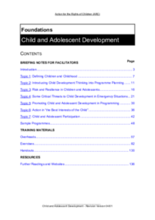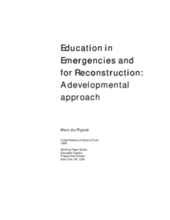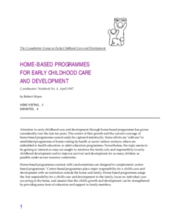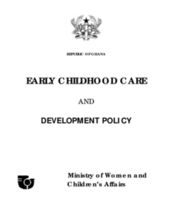Displaying 481 - 490 of 490
Training materials on the threats to children’s development from displacement and armed conflict and other emergency situations. It includes guidance on strategies to promote children’s development in adverse conditions.
Outlines strategies for responding to education needs in communities affected by crisis or chronic instability. Includes a summary of UNICEF’s approach, some practical information on implementation, and an identification of areas where more work is needed.
This chapter from the 'Handbook of attachment: Theory, research, and clinical applications' examines the connection between attachment theory and child care policies.
A brief paper highlighting the benefits of using home-visits to support child development and child protection. It suggests that drawing on local resources (including para-professionals and community volunteers) to do the home-visits can be an effective method of supporting families and reducing program costs.
This policy document replaces various uncoordinated, sector-biased programmes developed and implemented by the Ministry of Education Youth and Sports, Ministry for Employment and Manpower Development, the Ministry of Health and, the Ghana National Commission on children and other Stakeholders.
The Center on the Developing Child created this Guide to Toxic Stress to clear up the confusion and help you learn the facts about toxic stress step by step.
This toolkit is designed to help communicators in the field to translate the science of early childhood development and mental health in the Australian context, in order to increase support for evidence-based programs and policies designed to improve child and social outcomes in Australia.
From brain architecture to toxic stress to serve and return, The Brain Architects, a new podcast from the Center on the Developing Child at Harvard University, focuses on the specific, practical questions that often arise for parents and caregivers during the critically important period of early childhood.
This infographic explores how epigenetics relates to child development and how early experiences can have lifelong impacts.
Este video explica estrés tóxico y cosas que podemos hacer para defendernos a nosotros y a nuestros hijos de los efectos de incluso el estrés más intenso.




